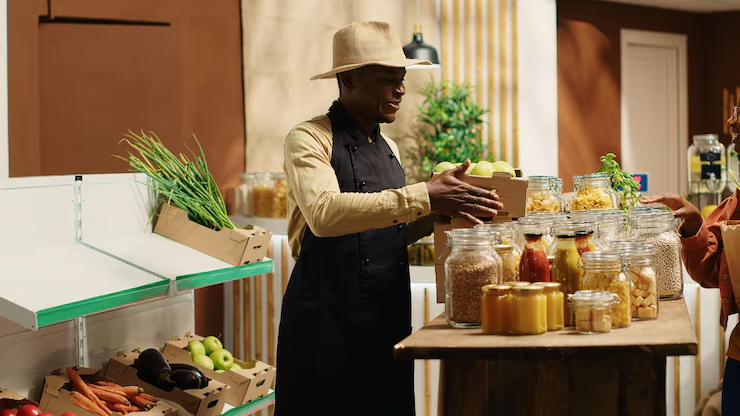Starting a backyard tuckshop is a popular and practical way for many Batswana to earn a living, especially in residential areas where convenience and affordability matter most. But while informal tuckshops can be profitable, running one without proper registration can lead to fines, closures, or missed opportunities for growth. Legalising your backyard tuckshop in Botswana is not only the right step—it also opens the door to better credibility, access to financing, and long-term stability.
The first step in legalising your tuckshop is choosing a business structure. Most small tuckshops are registered as sole proprietorships or micro enterprises, which are simple and affordable to set up. You can register your business name and structure through the Companies and Intellectual Property Authority (CIPA) online portal. This process gives your business a legal identity and protects your brand.
Once your business is registered, the next step is applying for a trade license. This is done through your local council or district authority. For a tuckshop, you will need a general dealer license or a miscellaneous trade license, depending on the range of products you sell. The council may send inspectors to check your premises to ensure your setup meets minimum health and safety standards.
In addition to the trade license, the council may require you to obtain a health clearance certificate from the local health department. This ensures that food items are stored, handled, and displayed in a hygienic manner, especially if you’re selling snacks, beverages, or cooked items. Keeping your shop area clean and secure will not only help pass inspections but also improve customer trust.
You will also need to comply with zoning regulations. Even if you’re operating from home, your area must be zoned for commercial or mixed-use purposes. In many residential areas, backyard tuckshops are permitted as long as they don’t cause disturbances. The council will assess your location and ensure your shop doesn’t block access or interfere with neighbours’ comfort.
It’s also important to register for tax compliance with the Botswana Unified Revenue Service (BURS). While small businesses may not immediately reach the tax threshold, having a Tax Identification Number (TIN) prepares you for growth and positions you to access government tenders or supplier contracts in the future.
If you plan to hire staff, even informally, ensure you comply with basic labour regulations, including fair wages, safe working conditions, and respect for employee rights. While most backyard tuckshops are run by family members, expanding your team means taking on more responsibility as an employer.
Legalising your tuckshop also brings long-term benefits. Once registered, you can open a business bank account, apply for small business grants, or seek funding from financial institutions like CEDA or commercial banks. Legal status also makes it easier to supply local schools, offices, or cater for community events.
Running a backyard tuckshop is about more than just selling sweets and basic goods—it’s a real business with the potential to grow. By following the legal steps, you build a foundation that protects your work, strengthens your reputation, and gives you access to broader opportunities. In a country that supports entrepreneurship, taking the formal route is a smart investment in your tuckshop’s future.










